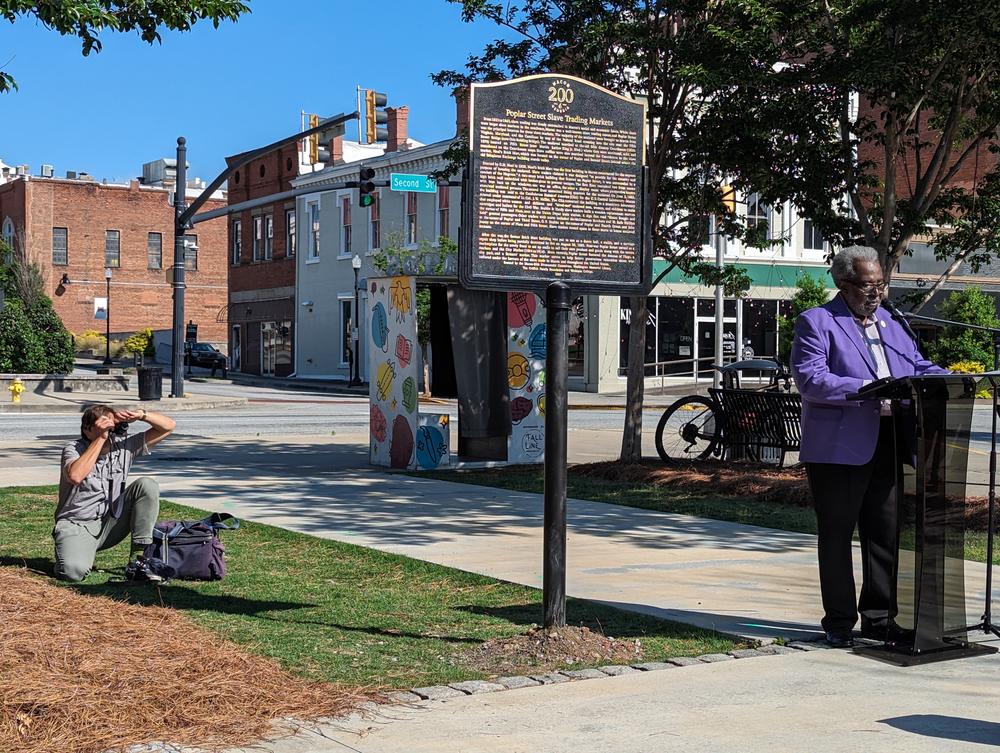
Section Branding
Header Content
Crafting Democratic Futures in Macon
Primary Content
Macon’s Wesleyan College is one of nine colleges and universities around the country selected to participate in a three-year Crafting Democratic Futures Project funded by the Andrew W. Mellon Foundation. The initiative is bringing together colleges and universities around the country with communities to develop suggestions for racial reparations solutions. Three of these nationwide institutional partners are in Georgia, and GPB has been pleased to partner with Emory University and Spelman College for screenings of The Cost of Inheritance: An America ReFramed Special and expert panel discussions.
Wesleyan College has focused their work on researching, honoring and acknowledging Macon’s Black history. Together with the Macon-Bibb County bicentennial committee, Washington Memorial Library and Visit Macon, representatives from Wesleyan College’s Lane Center for Social and Racial Equity celebrated the unveiling of bronze markers dedicated to facets of Macon’s Black history on a beautiful spring morning in Poplar Street Park. The markers will serve as permanent reminders of Black history across downtown Macon’s vibrant streetscape. The markers were researched and written by Muriel McDowell-Jackson, Head of the Genealogical and Historical Room and Middle Georgia Archives at Washington Library. There are three bronze markers, a material estimated to last 500+ years, and an additional number of aluminum signs with QR codes inviting visitors to download the Tour Macon app and complete a Black History Trail walking tour are to be laid as well. Read more about the markers and listen to GPB’s Grant Blankenship’s reporting on the event here.

The unveiling ceremony was opened by Macon200 Co-Chair Alex Habersham and included remarks by Macon-Bibb County Mayor Lester Miller and Dr. Brandi Simpson-Miller of Wesleyan College. Attendees were invited on a Meditative Walking Tour by Macon Mental Health Matters following the unveiling, led by George Fadil Muhammad with additional remarks provided by Gloria Smith Cissé.





